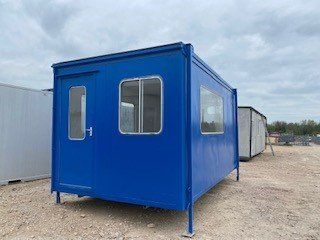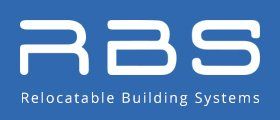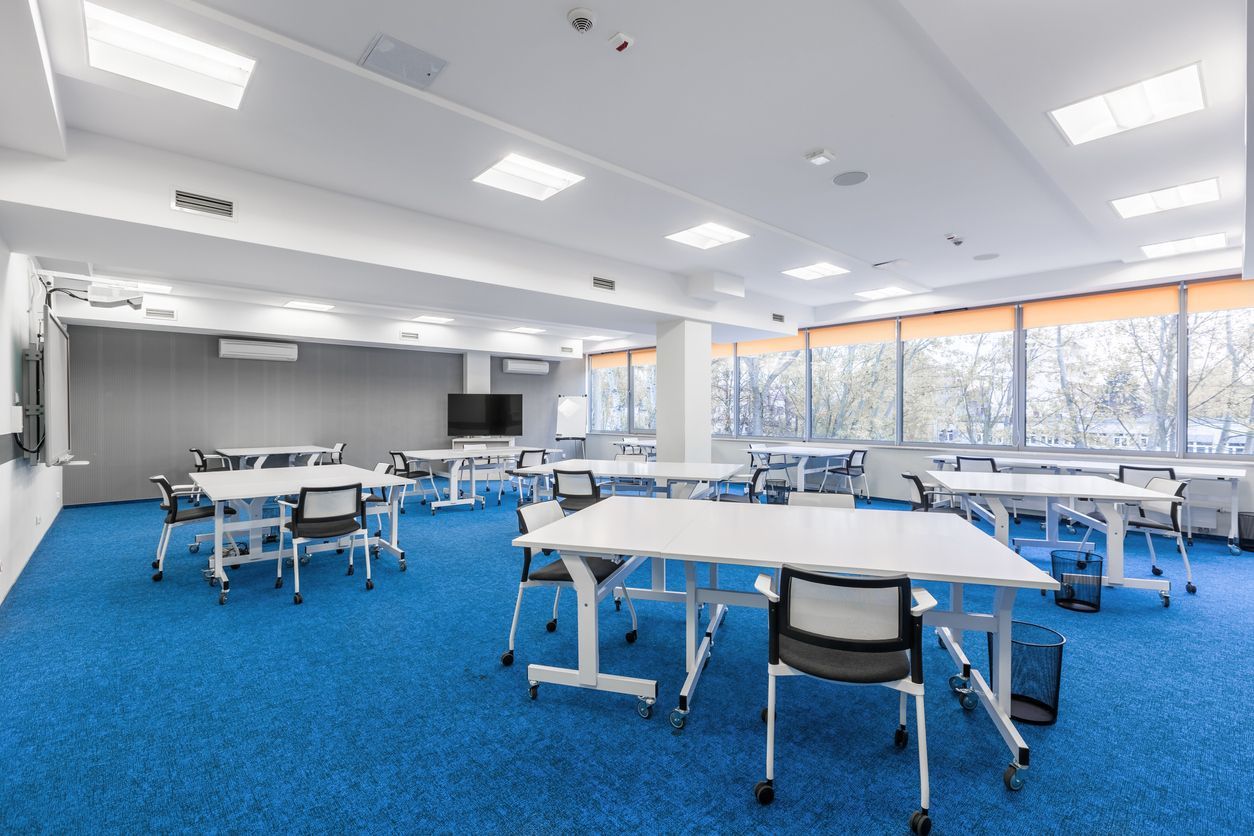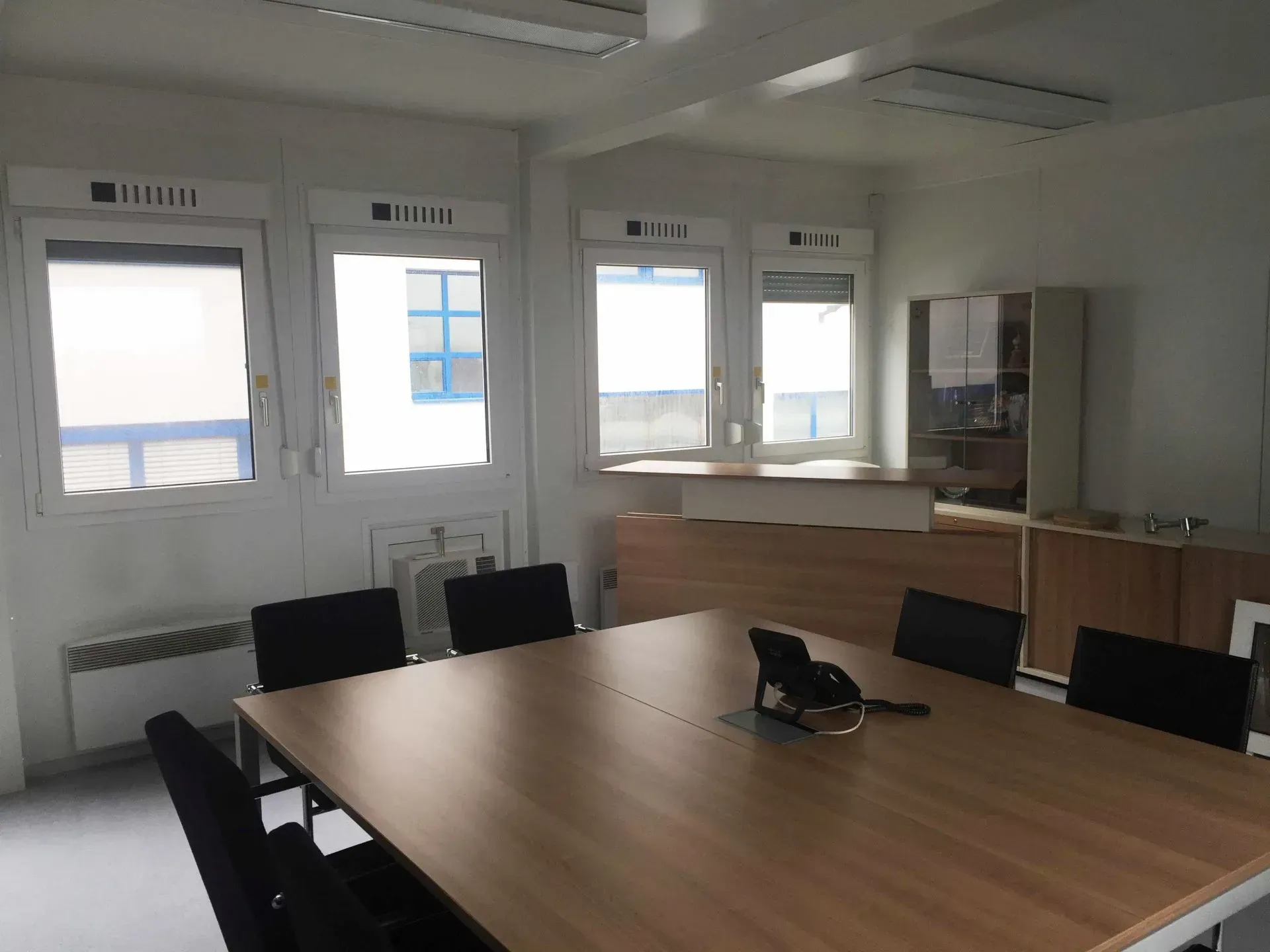

From mobile classrooms on primary school sites to temporary health clinics, modular buildings are all around us. Modular buildings have emerged as a game-changer, offering numerous benefits that traditional construction methods struggle to match. In this guide, we explore what modular buildings are, delve into their unique features, and discuss why they matter in today's world.
What are modular buildings?
Modular buildings, also known as prefabricated or off-site construction, are structures that are manufactured in modules or sections off-site and then transported to the desired location for assembly. These modules are built in controlled factory environments and are typically made of steel or timber frames and feature integrated electrical, plumbing, and HVAC systems.
The history of modular construction in the UK
The origins of modular construction in the UK can be traced back to the late 19th century when the first prefabricated buildings were introduced. However, it was during the post-World War II era that modular construction gained widespread popularity in the UK. After the war, there was an urgent need for quick and affordable housing solutions, leading to the adoption of prefabricated building techniques. The UK government launched various housing initiatives, such as the Temporary Housing Programme and the Permanent Housing Programme, which relied heavily on prefabricated construction methods. Since then, modular construction has continued to evolve and is now widely used in various sectors across the UK.
The benefits of modular buildings
There are countless benefits associated with modular buildings. These include:
Speed and efficiency
One of the most useful advantages of modular buildings is their significantly reduced construction time. Since modules are constructed simultaneously in a factory setting, the overall project timeline is greatly shortened. This time efficiency is particularly beneficial in urgent situations, such as disaster relief efforts or when there is a need for temporary facilities.
Cost-effectiveness
Modular construction can save you money in various ways. The controlled factory environment minimises material waste and reduces the risk of weather-related delays. Additionally, the assembly process is streamlined, requiring fewer labour hours.
Sustainability
Modular buildings are considerably sustainable. The factory-based construction process allows for better waste management, recycling, and energy efficiency. Plus, the use of standardised modules reduces the need for raw materials, minimising the environmental impact. Modular buildings can also be designed with energy-saving features, such as solar panels and efficient insulation, further reducing their carbon footprint.
Adaptability
Modular buildings offer limitless flexibility in design and functionality. The modular nature allows for easy expansion or reconfiguration, making them ideal for evolving needs. Whether it's adding extra floors, changing layouts, or relocating the entire structure, modular buildings provide the adaptability required in the modern world.
How long do modular buildings last?
Modular buildings can last a pretty long time, just like regular buildings, as long as they are taken care of properly. Factors like how well they were built, how they're maintained, the environment they're in, and how they're used can affect their lifespan. The materials used in modular buildings are sturdy and meet building codes, so they can handle being transported and assembled. Regular maintenance, like inspections, fixing problems quickly, and keeping things clean and painted, can help them last even longer. On average, modular buildings are expected to last around 30 to 50 years or more, but this can vary depending on different factors.
What are the different types of modular buildings?
Modular buildings come in various types and serve a wide range of purposes. These are some common types of modular buildings and their specific applications:
Residential modular buildings
Residential modular buildings include single-family homes, townhouses, and multi-story apartment complexes. These structures are built off-site using modular construction techniques and then transported to the desired location for assembly. Residential modular buildings offer fast and cost-effective solutions for housing needs, while still providing a range of designs and high-quality finishes.
Commercial and office modular buildings
Commercial and office modular buildings are used for a range of purposes, including retail stores, office spaces, and industrial facilities. These structures can be designed to accommodate various needs, such as open-plan office spaces, conference rooms, reception areas, and retail showrooms. They provide businesses with quick and flexible solutions for establishing operations, reducing downtime, and maximising productivity.
Education modular buildings
Education modular buildings are widely used in the education sector, including schools, colleges, and universities. They can be used as temporary or permanent classrooms, administrative offices, libraries, laboratories, and even student accommodation. Modular construction allows educational institutions to quickly respond to changing enrolment numbers, accommodate growing student populations, or provide facilities in disaster-stricken areas.
Healthcare modular buildings
Modular buildings are increasingly being used in the healthcare industry to address the growing demand for medical facilities. They can be used as temporary or permanent medical clinics, hospitals, and rehabilitation centres. Healthcare modular buildings provide flexibility to quickly expand or modify facilities based on changing needs, and they can be equipped with state-of-the-art medical equipment and technology.
Hospitality and tourism modular buildings
Modular construction is gaining popularity in the hospitality and tourism sectors. These buildings can be used for hotels, resorts, lodges, and holiday homes. Modular hotels can be constructed quickly to meet the demands of tourism seasons or specific events. They offer customisable designs, allowing hoteliers to create unique and appealing spaces for guests.
Retail modular buildings
Retail modular buildings serve as temporary or permanent retail spaces, including pop-up stores, kiosks, and shopping centres. They offer a cost-effective and efficient solution for retailers, enabling them to establish their presence in high-traffic areas or quickly respond to market trends.
Government and public sector modular buildings
Modular construction is also widely utilised by the government and public sectors. These buildings can be used for government offices, police stations, fire stations, military facilities, and community centres. Modular construction enables these entities to quickly establish facilities, respond to emergencies, and provide essential services to communities.
Industrial modular buildings
Industrial modular buildings are designed for specific industrial applications, such as manufacturing facilities, warehouses, and storage units. These structures can be customised to accommodate specialised equipment, machinery, and heavy-duty operations.
Things to keep in mind before purchasing a modular building
Before purchasing a modular building, there are several important factors to consider:
● Purpose - determine the intended use of the modular building. Whether it's for residential, commercial, educational, or other purposes, understanding your specific needs will help guide your decision-making process.
● Budget - establish a budget for your modular building project. Consider not only the initial purchase cost but also any additional expenses such as transportation, installation, site preparation, permits, and ongoing maintenance.
● Quality and reputation - research and choose a reputable modular building manufacturer or supplier. Look for companies with a proven track record, positive customer reviews, and certifications that ensure quality and compliance with building codes.
● Customisation options - consider the level of customisation available. Modular buildings can be tailored to meet your specific requirements, so evaluate the flexibility of the manufacturer in terms of design, layout, finishes, and optional features.
● Building codes and permits - familiarise yourself with local building codes, zoning regulations, and permit requirements. Ensure that the modular building you purchase complies with these regulations to prevent any potential legal or logistical issues.
● Site preparation - evaluate the site where the modular building will be installed. Think about factors such as access, utilities, foundation requirements, and any site-specific considerations that may impact the installation process.
Refurbished modular buildings at Relocatable Building Systems
Relocatable Building Systems offer an extensive range of modular, portable and temporary building units that can be tailored to suit your unique specifications. Based in Derby, we work with clients across the UK to offer temporary site accommodation that can act as mobile site offices and much more. We have been providing our clients modular and portable building structures to our clients for over 30 years. Our full design, build and installation service covers every aspect of the process. We are both CHAS and SafeContractor accredited, so you know it’ll all be done in the right way. To find out more about our services, please
contact us today.






